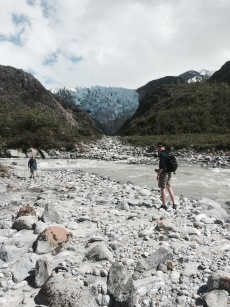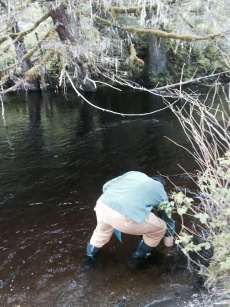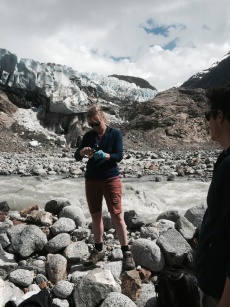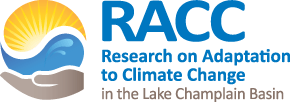


Andrew Schroth and graduate student Braden Rosenberg(Geology MS Candidate '15) traveled to Juneau, Alaska as part of a collaboration between EPSCoR track 1 efforts across these states. The cross-state study is part of an ongoing collaboration between Schroth and EPSCoR-funded University of Alaska Southeast(UAS) faculty Sonia Nagorski, Eran Hood, Jason Fellman and Sanje Pyare. The study, much of which will be the focus of Rosenberg's MS thesis, aims to examine nutrient dynamics(N, P, Trace Metals) during high flow events(storms, snow/ice melt) across a suite of watershed's with landcover typical of those states(Alaska-glacial and forested watersheds, Vermont, forested, urban, and agricultural watersheds). The design of the study is based on utilizing existing research infrastructure developed by EPSCoR Track 1 efforts in Alaska and Track 1(RACC) and 2(NEWRNet) efforts in Vermont, all of which examine hydrolologic and biogeocemical dynamics in these watersheds in the context of climate change. During the recent visit, common sampling and laboratory protocols were confirmed and monitoring sites were visited with some sample collection. Additionally, Schroth presented and overview of the RACC and NEWRNet research programs to local research team members and stake holders at the new USDA Juneau Forestry Sciences Laboratory on the UAS campus. Moving forward, the team in Alaska will conduct high frequency sampling and sensor-based monitoring in these watersheds during periods of high flow across the summer into fall, while Schroth, Rosenberg, and undergraduate intern Baxter Miatke will continue to target similar events at sites in the Lake Champlain Basin here in Vermont.
